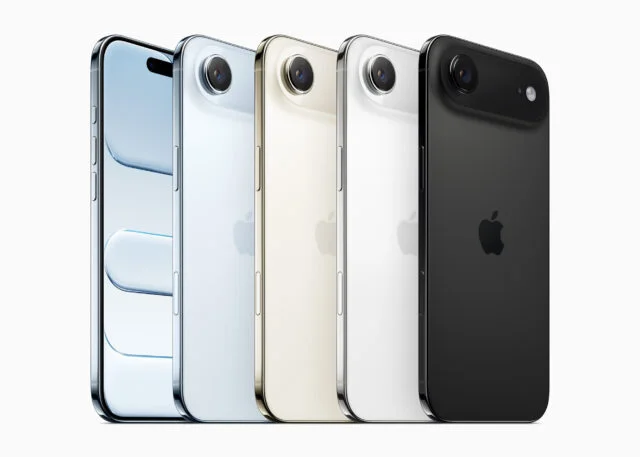On September 9, 2025, Apple CEO Tim Cook unveiled the iPhone Air, the company’s thinnest smartphone at 5.6 mm, during its annual product launch in Cupertino, California.
Echoing Steve Jobs’ design philosophy, Cook quoted him: “For us, design goes beyond just how something looks or feels. Design is also how it works.”
The iPhone Air, alongside the iPhone 17, 17 Pro, and 17 Pro Max, aims to refresh a lineup critics called stagnant.
iPhone Air: Design and Features
Slim Design and Durability
- At 5.6 mm (0.22 inches), the iPhone Air is thinner than Samsung’s Galaxy S25 Edge (5.8 mm).
- Features a titanium frame and “ceramic shield” glass for enhanced durability.
- Circuitry is compacted to the size of a few postage stamps, supporting Apple’s claim of “all-day battery life.”
Advanced Technology
- Powered by the A19 Pro chip, optimized for AI tasks.
- Includes two new custom Apple communications chips.
- Priced at $999, $100 less than Samsung’s Galaxy S25 Edge, and positioned mid-tier in Apple’s lineup.
Reception and Market Impact
Analyst and Influencer Reactions
- YouTuber Gaurav Chaudhary (“Technical Guruji”) with 24 million followers praised the design but awaits battery life confirmation.
- Analyst Paolo Pescatore of PP Foresight said the iPhone Air “reinvigorates” the smartphone market, countering years of similar designs.
- Nabila Popal of IDC predicts strong sales, replacing the iPhone Plus, which held 5-7% of Apple’s shipments.
Challenges and Trade-Offs
- The iPhone Air has one camera, unlike the two on the iPhone 17 or three on Pro models.
- Doubts persist about meeting battery life claims due to the slim design.
- IDC’s Will Wong noted compromises on battery, cameras, and audio may limit sales in markets like China, where Apple has lost share to slimmer, cheaper rivals.
Comparison with Competitors
Samsung Galaxy S25 Edge
-
Samsung’s S25 Edge, launched earlier in 2025, shipped 1 million units in Q2.
-
Priced higher than the iPhone Air, it offers more cameras but a slightly thicker frame.
AI and Market Share
- Unlike Google’s Gemini AI-powered phones, the iPhone Air lacks new AI features, a gap analysts note.
- In China, Apple aims to regain market share with the iPhone Air’s design, though success is uncertain.
Why This Matters
The iPhone Air’s sleek design and competitive pricing could drive upgrades during the 2025 holiday season, boosting Apple’s sales (current AAPL price: $234.35, per provided data).
By evoking Steve Jobs’ legacy, Apple seeks to differentiate in a competitive market, but its success hinges on delivering promised battery life and appealing to cost-conscious consumers.
Top 10 Digital Nomad Visa Countries for 2025























